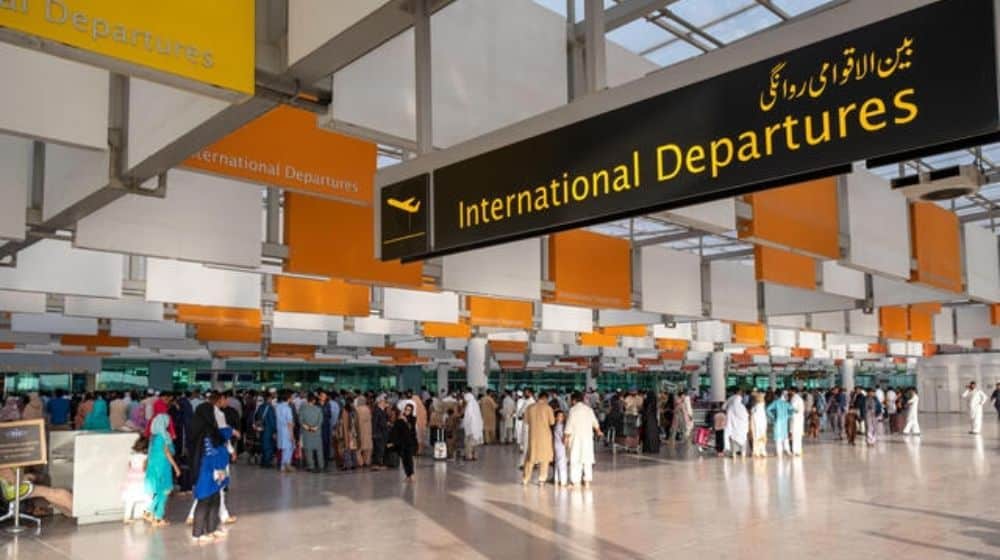The Migration Dilemma: Risking It All for a Better Future

“I was just 18 when I left for Saudi Arabia for an opportunity of better earning,” shared Wasim Khan, a 53-year-old resident of a village in Sahiwal. “We had a little piece of land, and it was the sole source of income for our family of nine.”
Wasim’s story is not unique. In his village, with a population of 3,000, many young boys ventured to Saudi Arabia in search of a better lifestyle for their families. “It was a trend in those days to become rich in a short time,” Wasim further added.
A report by the Pakistan Institute of Development Economics (PIDE) reveals that in 2020, nearly 6.3 million Pakistani immigrants were residing abroad, making Pakistan one of the top ten immigrant populations globally. The trend of out-migration has consistently increased over the past two decades, with a substantial 86 percent increase in migrant growth compared to 2000.

Legal or illegal, migration remains a top aspiration for many Pakistani youngsters due to the country’s poor economic conditions, shrinking job market, and pervasive corruption. However, a critical question persists: Why are so many young people willing to risk their lives through illegal migration?
Usman Ahmad, a resident of Multan who has been living in the United Kingdom for the past 10 years, shared his insights with reporters. He recounted meeting numerous Pakistani youngsters in the UK who had arrived illegally and were enduring difficult lives. “In Pakistan, even if you work for 12 hours, you won’t get the salary you deserve,” Ahmad explained. “But in other countries, you earn according to your efforts, and the exchange rate for the Pakistani currency is low.”
Ahmad also pointed out the challenges of legal migration. Many people find the process daunting due to extensive documentation and strict requirements. “Our foreign ministry advertises multiple international labor jobs, but unfortunately, people are not aware of them,” he added. The combination of bureaucratic hurdles, lack of awareness, and increasing frustration drives many to seek opportunities abroad, often through dangerous and illegal means.
On Wednesday, 24th July 2024, the Minister for Religious Affairs and Interfaith Harmony, Chaudhry Salik Hussain, disclosed before the Senate Standing Committee on Religious Affairs that 50,000 Pakistani Zaireen had disappeared in Iraq while visiting the country. This alarming news comes amid a backdrop of severe economic challenges for Pakistan.
Wasim was the first in his family to reach Saudi Arabia illegally, but the hardships he faced taught him several valuable lessons. “Life was difficult,” he recounted. “My hands were constantly swollen, and my feet were frequently injured, but I was able to earn a good income. However, those days were like a nightmare.”
Reflecting on his experiences, Wasim decided that he would no longer advise or help anyone in pursuing illegal migration. “I faced many hardships,” he said, “and I don’t want others to go through the same ordeal.”
In recent years, Pakistan’s economy has been in turmoil. Food prices have soared, and the number of people facing food insecurity has doubled to 14.6 million, according to UN figures. The estimated lower-middle-income poverty rate stands at 40.1 percent (US$3.65/day 2017 PPP) for the year 2023-24, virtually the same as the poverty rate in 2018 but with 7 million more Pakistanis living below the poverty line, according to the World Bank.
Additionally, the textile industry, a cornerstone of Pakistan’s economy, is on the verge of collapse. Rising production costs and dwindling exports have resulted in about 7 million workers losing their jobs in this sector alone, as reported by industry groups. This sectoral decline has exacerbated the overall economic instability, further straining the livelihoods of millions of Pakistanis.
In 2024, over 700,000 Pakistanis left the country seeking better job opportunities, according to the Bureau of Immigration and Overseas Employment. Official data indicates that 789,837 people went abroad for employment, compared to 811,469 in 2023. This trend reflects the ongoing economic challenges and the desire for a more stable and prosperous future among the Pakistani workforce.
The Greece boat sinking incident stands as one of the most unfortunate maritime disasters in recent history. According to Pakistan’s Federal Investigation Agency, at least 181 people from Pakistan and 28 from Pakistan-administered Kashmir were among the victims of this devastating sea tragedy in the Mediterranean. This incident underscores the perilous risks many individuals take in their quest for a better life abroad.
In 2018, the Government of Pakistan introduced two laws aimed at curtailing the illegal movement of migrants: the Prevention of Trafficking in Persons Act and the Prevention of Smuggling of Migrants Act. The latter legislation decriminalized migrants and imposed punishments of up to 14 years in prison for the agents involved in smuggling.
Despite these measures, these laws have largely been unable to deter both traffickers and the migrants desperate . The persistent economic challenges and limited job opportunities continue to drive many Pakistanis to take dangerous routes in search of a better life.




